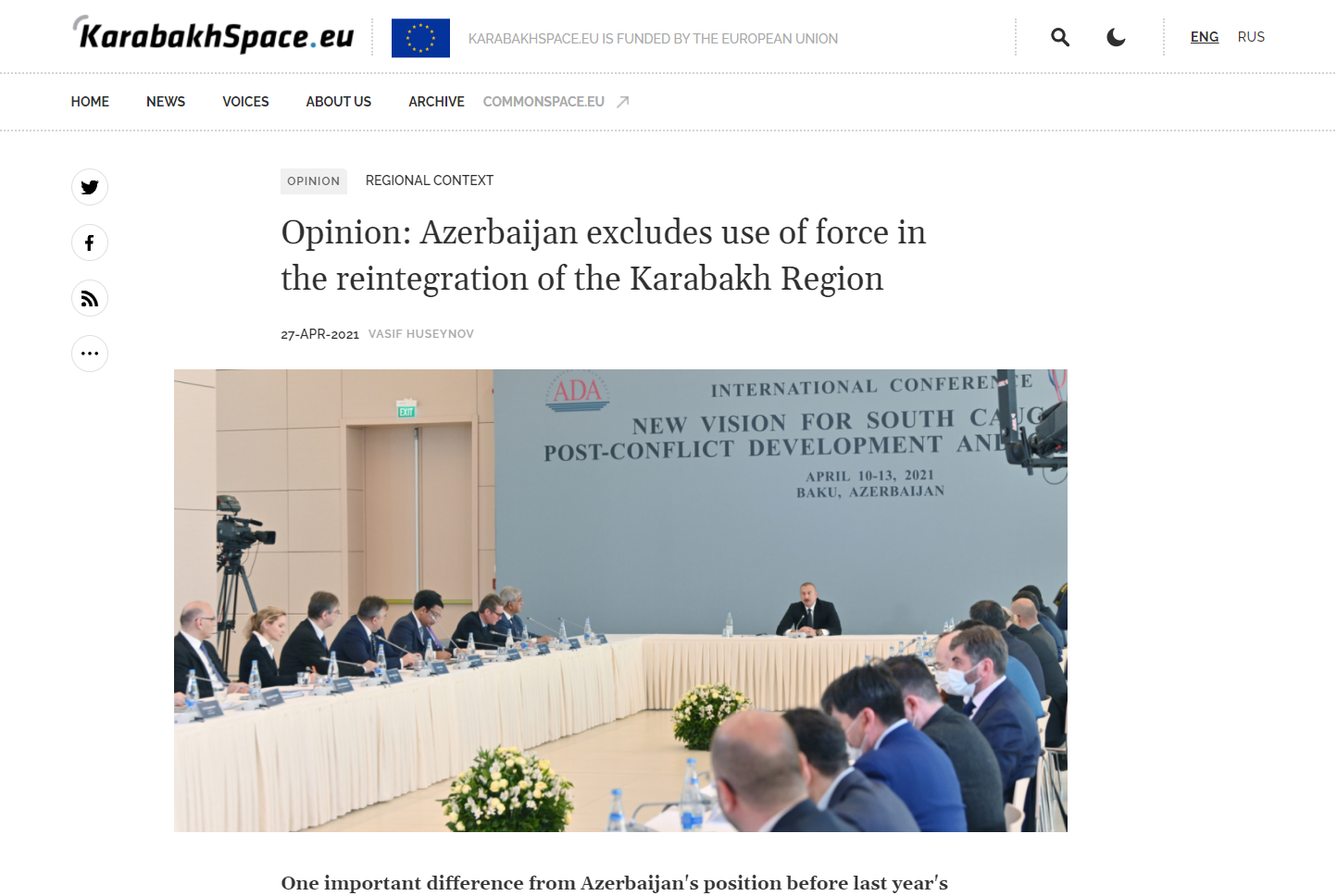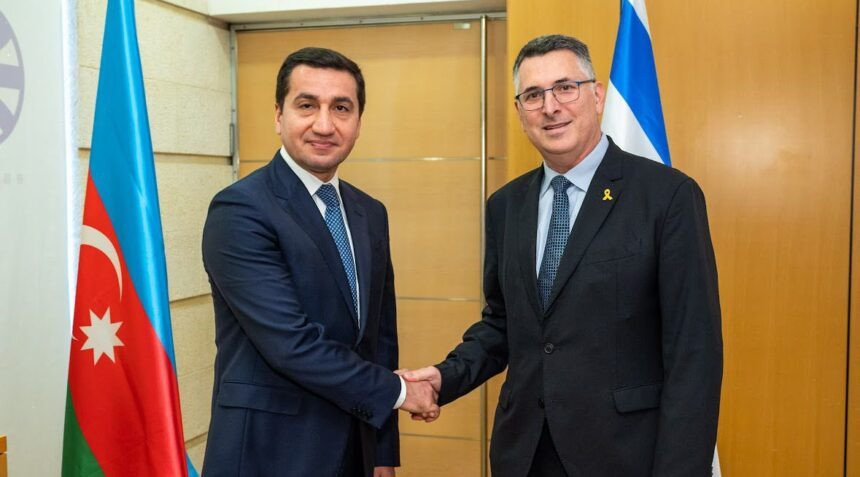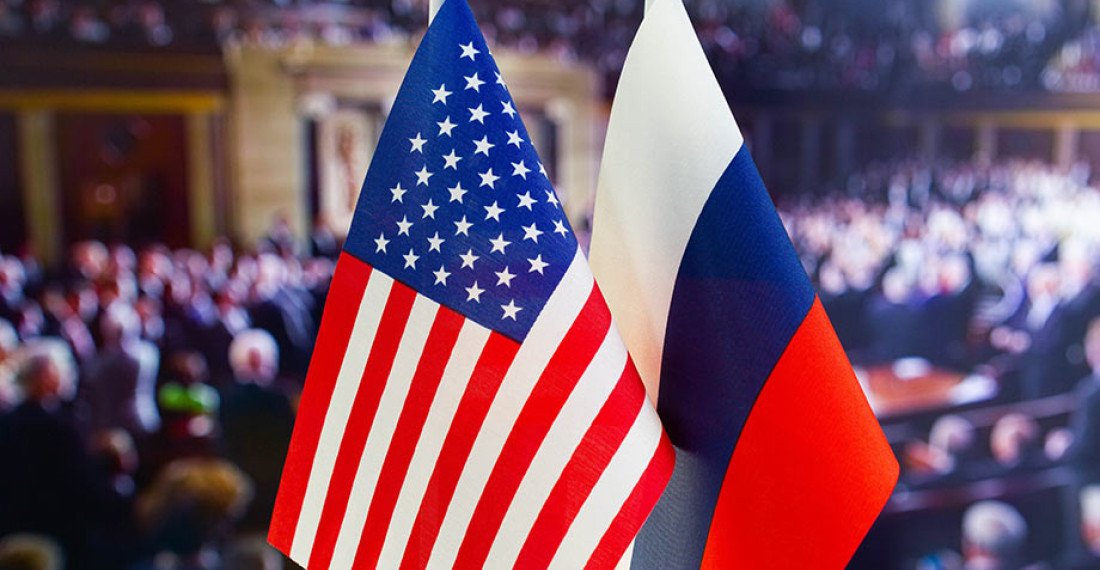Since the occupation of Nagorno-Karabakh and the surrounding districts – totalling 20 percent of Azerbaijan’s internationally recognised territory – by Armenia in the early 1990s, Azerbaijan adhered to the provisions of the peace negotiations mediated by the Organization for Security and Cooperation in Europe (OSCE) and hoped for a peaceful resolution to the conflict. At the beginning, the negotiations promised a lot to the Azerbaijani people. There were a number of resolutions by the United Nations Security Council and General Assembly that demanded the immediate, complete and unconditional withdrawal of the Armenian armed forces from the occupied territories of Azerbaijan. However, it soon became clear that neither did the Armenian leaders have a plan to return the Karabakh region to its legal owner nor did the international community have a desire to pressure Armenia to abide by these resolutions.
This left the Azerbaijani side no option but to obtain the necessary military might to liberate its occupied territories. ‘Azerbaijan is in a state of war; the war is not over, and the Armenian-Azerbaijani Nagorno-Karabakh conflict is not a frozen conflict; Azerbaijan will liberate its occupied territories militarily if Armenia refuses to resolve the conflict peacefully’ – Azerbaijan’s official rhetoric concerning the conflict was based on these lines for years before the Second Karabakh War in autumn of 2020. The war, started on 27 September by an Armenian provocation, put an end to the occupation of the Azerbaijani territories. On 10 November 2020, immediately after signing the Russia-brokered ceasefire accord with Armenia, President Ilham Aliyev declared the Nagorno-Karabakh conflict over.
In its counter-offensive operations to repulse aggression and ensure the safety of the civilian population, Azerbaijan relied on the principle of self-defence enshrined in international law along with the relevant United Nations resolutions. The unlawful occupation, defined by international law as an act of aggression, fully supported Azerbaijan’s right to self-defence. The legal underpinning of this right was also provided by the European Court of Human Rights that, in its judgment on the case ‘Chiragov and Others v. Armenia’, recognised the so-called “Republic of Artsakh” as being under Armenia’s effective control. The imitation of the negotiations by the Armenian government and increasing calls by Armenian leaders for full unification with the occupied territories of Azerbaijan entirely derailed peace negotiations and invalidated international efforts towards this end.
Successful military operations during the Second Karabakh War created a unique and lawful opportunity for the armed forces of Azerbaijan to recover all the occupied territories militarily. War crimes by the occupant forces of the enemy, the deliberate targeting of Azerbaijani civilian populations with ballistic missile attacks, and Armenia’s continued refusal to withdraw its armed forces from Azerbaijan’s sovereign soil were the basis for the legal underpinning of Azerbaijan’s counter-offensive operation. Neither international law nor the military situation on the ground prohibited this, and the wider geopolitical situation seemed likewise pertinent to the continuation of military operations until a total defeat of the Armenian side. The Azerbaijani government, however, refused to pursue maximalist objectives and, as promised at the very beginning of the war, agreed to a ceasefire as soon as the Armenian government committed to withdrawing its armed forces from Kalbajar, Lachin and Agdam – three districts adjacent to the former Nagorno-Karabakh Autonomous Oblast (NKAO) that remained under Armenian control prior to the end of the war.
According to the trilateral ceasefire deal concluding the war, the peacekeeping contingent of the Russian Federation was supposed to be deployed to the Karabakh region in parallel with the withdrawal of the Armenian armed forces. Russia’s peacekeepers are expected to stay in the region for a minimum of five years and longer if neither Armenia nor Azerbaijan declares the termination of this provision six months prior to the expiration of the period. The ceasefire in the region is being monitored by a joint center of Russian and Turkish forces established close to where Russia’s peacekeepers are deployed.
The territories of Karabakh under the control of Russia’s peacekeepers are currently populated only by Armenians, since as in other parts of the occupied region, Azerbaijani residents were forcefully expelled by Armenian armed forces during the first Karabakh war of the early 1990s. However, the peacekeeper-controlled territory was a place where Azerbaijanis and Armenians lived in peace during the Soviet period. The Azerbaijani government seeks to restore this peaceful co-existence and, as such, leave no excuse for the extended deployment of peacekeepers in the region.
President Ilham Aliyev of Azerbaijan, speaking at an international conference with foreign experts in Baku in mid-April, expressed doubt over there being any need for peacekeepers in the region in the future, saying “Today there is a state border between Armenia and Azerbaijan in Tovuz, Gazakh, Aghstafa [Azerbaijani towns on the border with Armenia], there are no peacekeepers there, and nothing happens”. The scandals related to the activities of the peacekeepers in the Karabakh region and the recent revelation of Armenia’s use of Russia’s Iskander-M ballistic missiles against the Azerbaijani side in the course of the war give reasons for many observers to anticipate Baku’s termination of the peacekeeping contingent’s mission in 2025, when the five-year period designated by the trilateral statement ends.
In this context, there is one important difference between Azerbaijan’s policies prior to the Second Karabakh War and afterwards. In contrast to the pre-war period, Azerbaijan has officially renounced the use of force from its policies concerning the reintegration of the territories that are now controlled by the Russian peacekeeping mission. Baku considers the Armenians settled in the Karabakh region as Azerbaijani citizens, seeking to peacefully reintegrate these people into Azerbaijani society and re-establish peaceful co-existence.
President Aliyev has on many occasions declared the Armenia-Azerbaijan Nagorno-Karabakh conflict “resolved”, called upon the Armenian side to jointly work to settle the remaining contested issues peacefully, and fully supported the re-opening of the cross-border transportation and communication channels that had been blocked since the first Karabakh war. Rejecting the fearmongering propagated in the Armenian media, President Aliyev underscored that Azerbaijan has no territorial claims against Armenia and will do all in its power to normalise bilateral relations and conclude a peace treaty with Armenia. Azerbaijan expects the Armenian side to take a similar position, abandon the revanchist rhetoric and work for peace and stability in the region.








